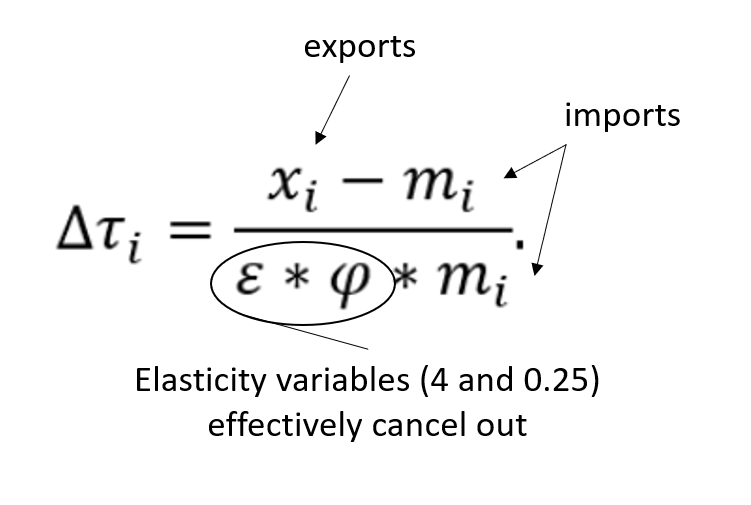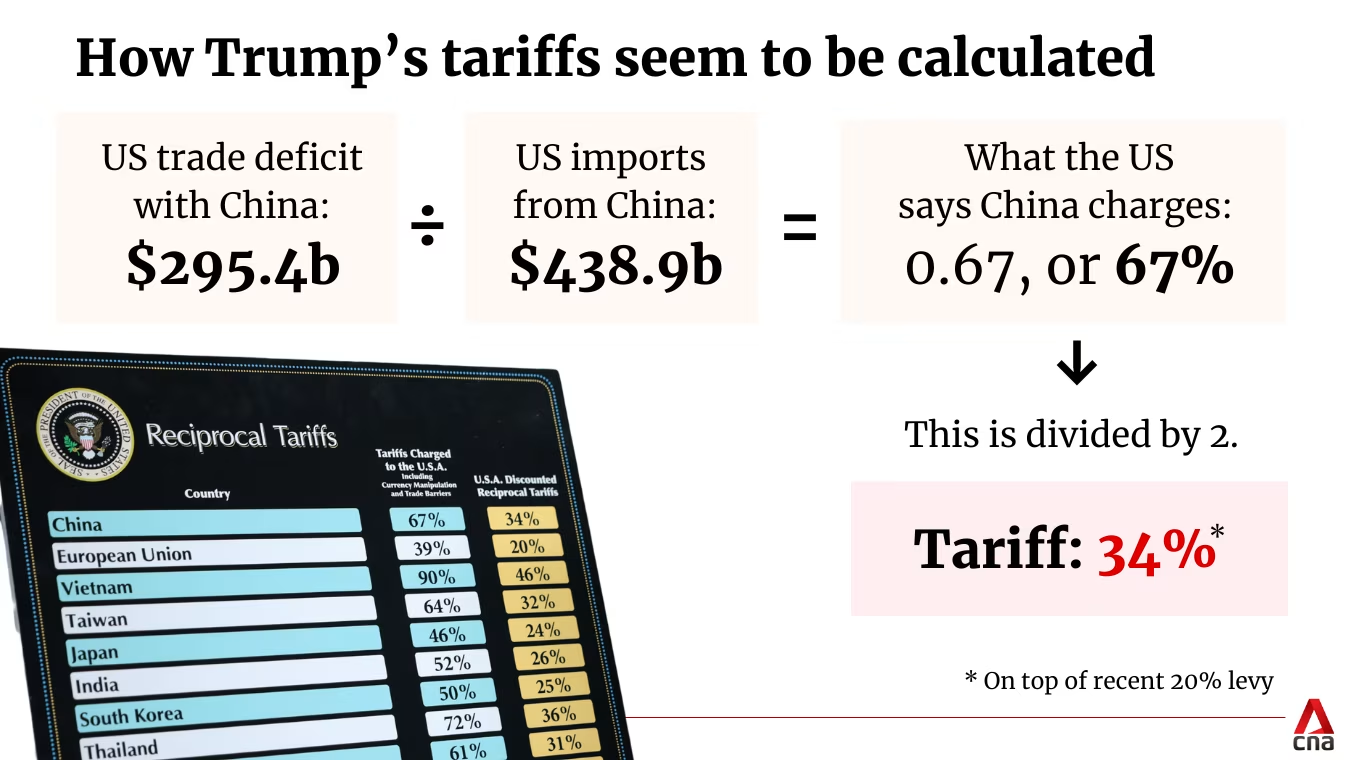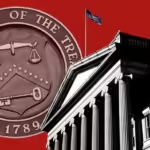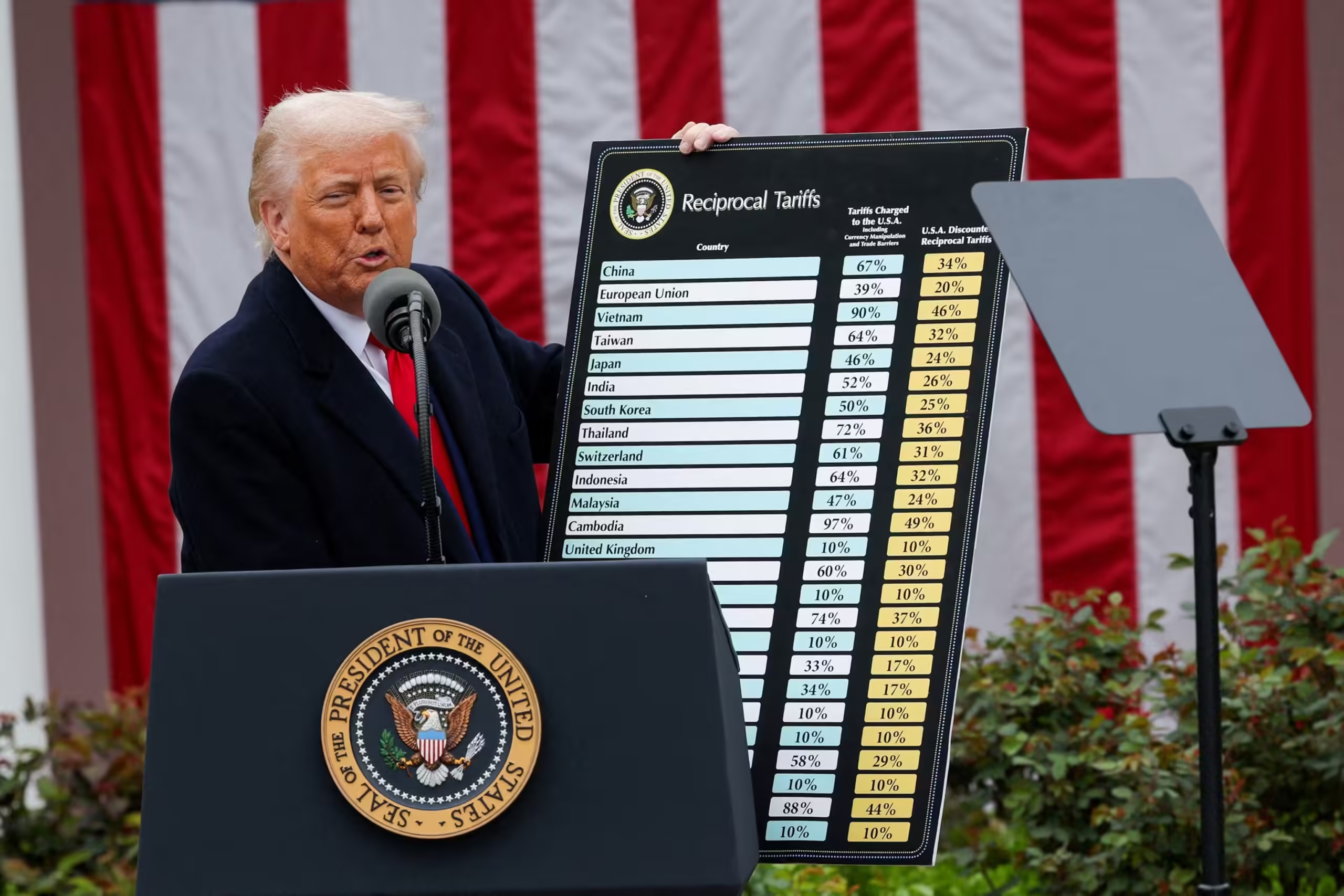
The Reality of Tariffs
- Nearly $6 trillion was wiped from markets in 2 days.
- Tariffs’ Impact: It has only lasting influence on market in a healthy economy(Which we don’t have).
- Current Economy: Complex web of fiscal policies, not a healthy economy.
- Currency Debasement: In our economy value of currency is being steadily eroded.
- Hence tariff threats are negotiation tactic to get better deals with other countries.
How Trump’s tariff is calculated ?
- Formula for “reciprocal” tariffs doesn’t consider a country’s tariffs at all, it just uses a country’s trade balance and assumes any imbalance is the result of a trade barrier….. Economist crying in corner
- English translation of formula :
- Trade Deficit with other country * 100 / US Imports from other country
- Trade Deficit with other country = (US Exports to other country – US Imports from other country)
- (4 × 0.25) = 1
- Example Calculation for China :
You think we have seen the worse?
- Wait until the EU also retaliates and then Trump retaliates against retaliations…
- Yes this was just the first step.
- The shakeout continues until the tariffs are settled.
- Could be months….. I believe Trump wants to get market sentiment positive again by late fall.
- Otherwise he’s at risk of losing seats in the 2026 midterm elections.
- So the turbulence could go for a few months more.
Situation
- The U.S. is $36.6 trillion in debt.
- $9.2T of that $36 trillion needs to either be refinanced or paid this year.
- Let’s examine both options and see how all roads lead to higher stock prices.
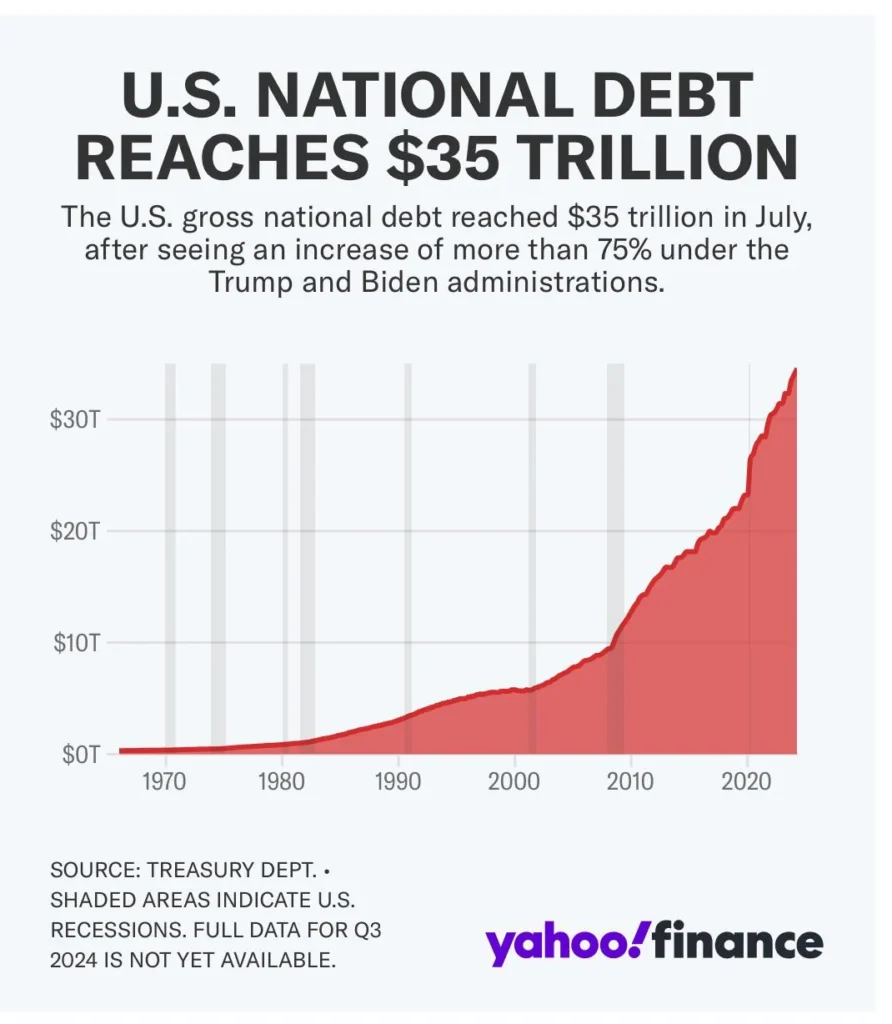
Option 1: Tax citizens to pay it off
- The government collected ~$5 trillion in taxes last year.
- Which means we’re still $4 trillion short.
- Plus, Trump is preaching zero income taxes.
- So raising taxes to collect $4 trillion more? Political suicide.
- Paying off the $9.2 trillion with taxes is off the table.
Option 2: Cut government spending and reallocate funds.
- Government can cut spending and reallocate funds such as the military, federal programs, etc.
- But that wouldn’t work either.
- Military = $900B
- Social Security = 1.4T
- Medicaid and other health insurance programs = $1.6T
- Even if I tally up all government expenditures, it still doesn’t pay off the debt.
Option 3: Print money (Quantitative Easing)
- The Federal Reserve will perform quantitative easing.
- Which is a fancy-pants way of saying they’ll print money out of thin air.
- This money will be used to purchase bonds from the US Treasury.
- This directly injects cash into the financial system.
- If the Fed creates $9.2 trillion, it’s practically impossible for stocks not to rise.
Option 4: Refinancing the debt at new interest rates
- The problem with refinancing at new rates is that interest rates are relatively high right now.
- And the US is already paying ~$1.2T in yearly interest.
- If we refinance $9.2T at current rates, that $1.2T in yearly interest would soar. Not good.
Near future probable step
- Fed will cut interest rates leading to more lending.
- Lending with low interest is how smaller banks effectively create money.
- The Short term PLAN
- Crash market on purpose
- Pressure FED to bring interest rates below 3% (Current 4.50%)
- Refinance debt ($9.2T)
- Quantitative easing (Print Money)
- Set 10% tariffs hard cap for other countries (Current 50% Reciprocal tariff)
- Market strong
- Crypto strong
- America is back humming on to an age of prosperity
- So no matter what happens, more money will be printed. Which means your assets will rise.
Real bear market
- If you’re wondering when a genuine bear market could take place….
- The most likely answer is 2026.
- We live in a global economy with 4-year debt cycles.
- The year of quantitative tightening and rate hikes worldwide is most likely 2026.
- Until then, enjoy this monumental buying opportunity.
What do I do?
- If your panicking, and thinking “what do I do?” Chances are you:
- 1. Don’t have an emergency fund.
- 2. Overexposed to equity (wrong asset allocation).
- 3. Don’t have a plan.
- 4. Don’t know what you are invested in.
- It’s okay if that’s the case, but you need to start re-evaluating and addressing it.

